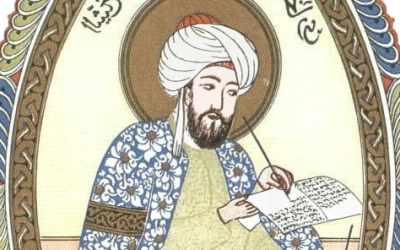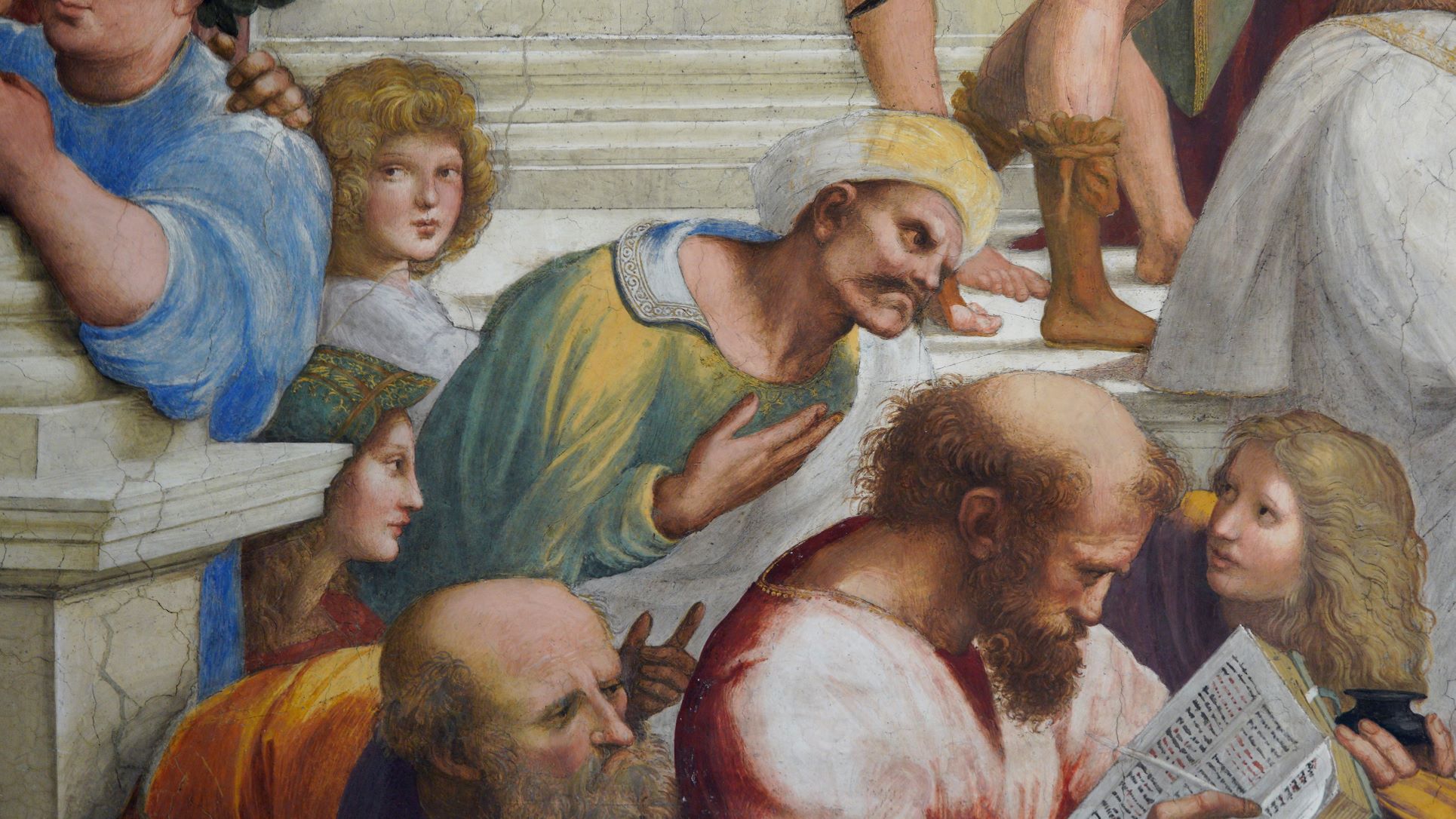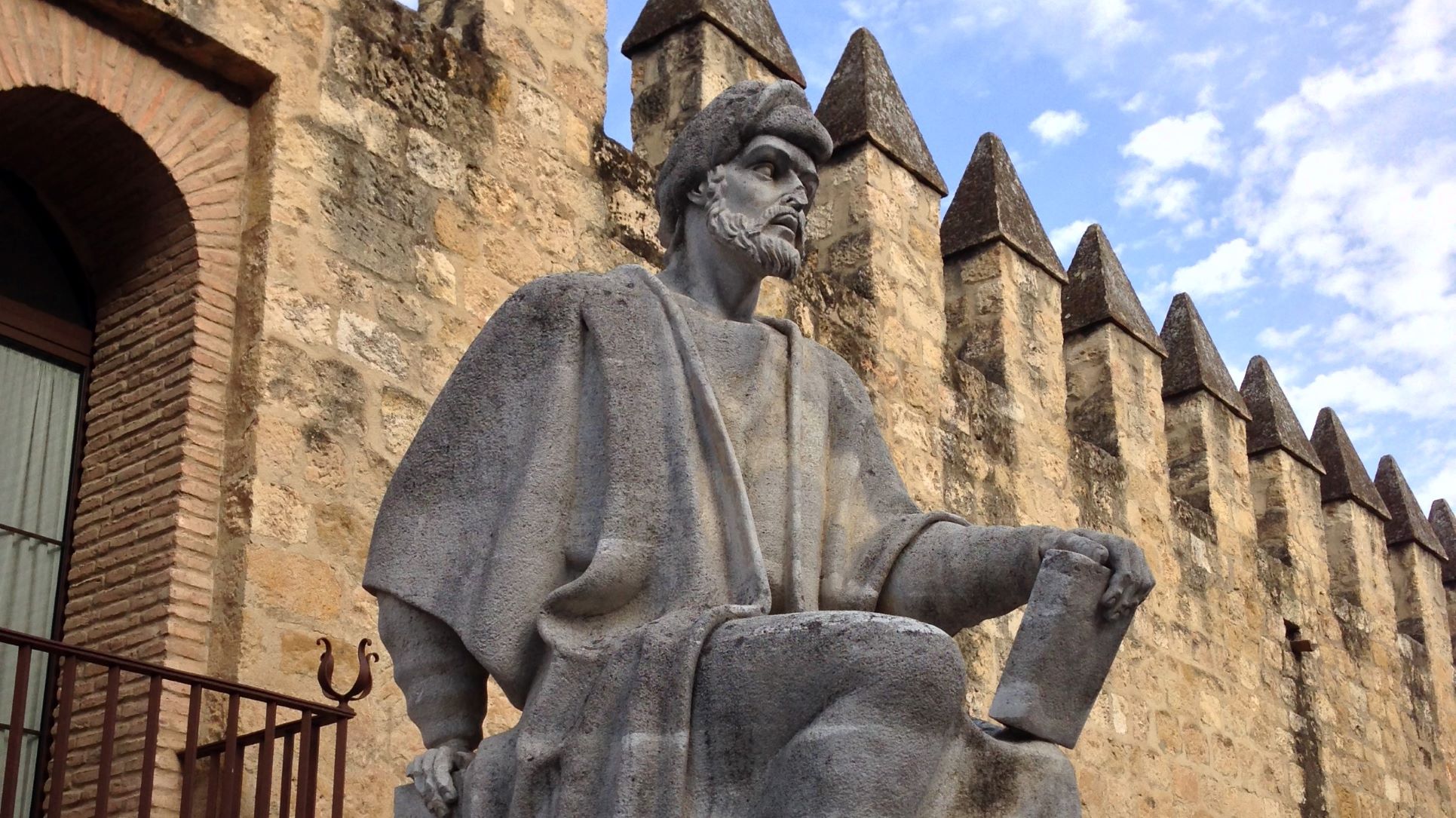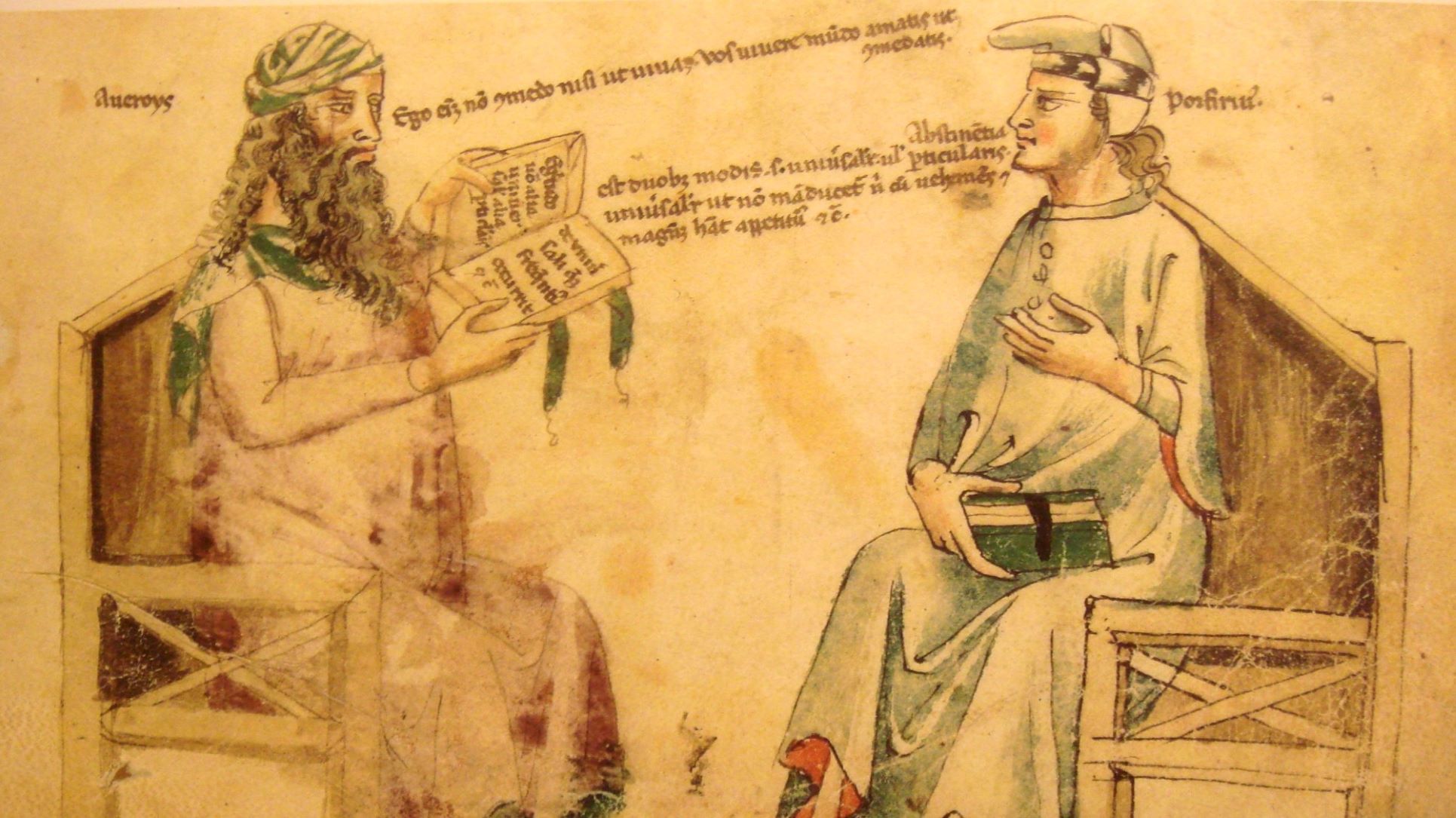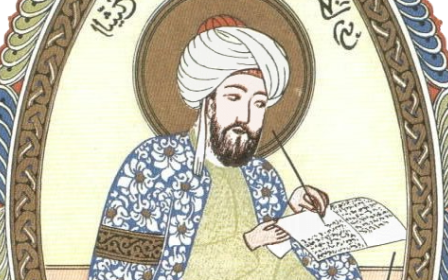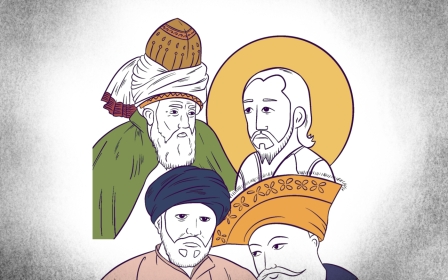Who was Ibn Rushd? The 'bridge' between Islamic and western philosophy
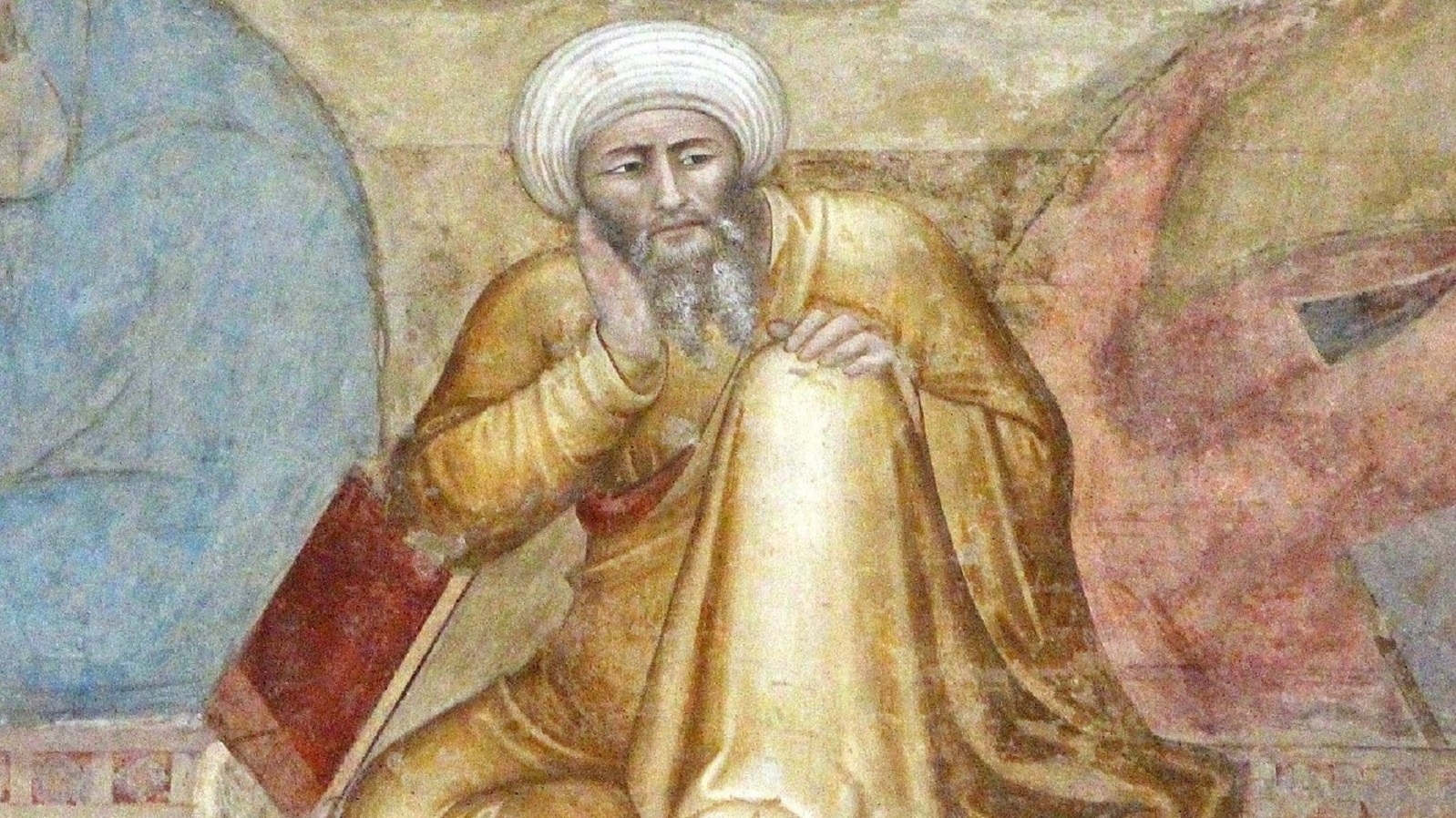
Ibn Rushd was a Muslim Andalusian polymath whose most notable contributions to philosophy were his commentaries on the Greek philosopher Aristotle, which would go on to inspire future European scholars.
Also referred to as Averroes, the Latinised version of his name, Abu al-Walid Muhammad ibn Ahmad ibn Rushd was born in 1126 in the Spanish city of Cordoba, which at the time was part of the Almoravid Empire.
The philosopher and theologian had a formative role in the establishment of European rationalism and his body of work has been praised as being a precursor of the European enlightenment, centuries later.
Besides philosophy, Ibn Rushd also produced scholarly works on topics as diverse as medicine, psychology and astronomy.
While well known in medieval Europe, Ibn Rushd is best known in the Islamic world for his theological work, particularly in the area of fiqh - the theoretical aspect of Islamic law. His philosophical ideas only gained widespread popularity in the Muslim world with the rise of Islamic reformist movements in the 19th century.
New MEE newsletter: Jerusalem Dispatch
Sign up to get the latest insights and analysis on Israel-Palestine, alongside Turkey Unpacked and other MEE newsletters
Here, Middle East Eye explores the life and work of one of Andalusia's most important intellectuals.
Who was Ibn Rushd?
Ibn Rushd was born in 1126 into a family of well-respected and successful Islamic scholars, with his grandfather Abu al-Walid Muhammad serving as the chief qadi (judge) of Cordoba and the imam of the Great Mosque of Cordoba.
The young scholar was trained in Islamic theology, studying the Quran, hadith (sayings attributed to the Prophet Muhammad) and Islamic jurisprudence, according to the Maliki school of thought.
As was common among scholarly families, Ibn Rushd also studied non-religious subjects, such as linguistics, physics, medicine and mathematics.
As he did not write an autobiography, specific details about his personal life are hard to come by.
What is known is that he rose to prominence in 1169 after he caught the attention of Abu Yaqub Yusuf, caliph of the Almohad Empire, who ruled a territory including southern Spain and northwest Africa.
Yusuf was an intellectually curious monarch who appreciated Ibn Rushd's ability to explain the works of Greek philosophers, such as Aristotle. Under Yusuf's patronage, the Andalusian served as a qadi in the Spanish cities of Seville and later his home city of Cordoba, eventually becoming the latter's chief qadi, like his grandfather before him.
What was he famous for?
Ibn Rushd's fame in Europe stems from his commentaries on the works of Aristotle, which led to a resurgence of interest in the Ancient Greek philosopher in Europe.
Ibn Rushd inspired future philosophers, such as the 13th-century Italian priest and philosopher Thomas Aquinas, who dedicated significant time to critiquing Ibn Rushd's works but nevertheless incorporated some of his ideas into his own scholastic approach.
The role of philosophical methods and the place of reason in the study of religion was controversial in both the Christian and Islamic worlds during the early medieval ages, as both the Catholic Church and many Islamic scholars believed such approaches undermined the sacredness of divine revelation.
Throughout the 13th century, followers of Ibn Rushd, known as Averroists, were the subject of official condemnations by the church, which took issue with their ideas on the eternal nature of the universe and that all human beings shared the same intellectual capacity.
Despite the church's rebuke, Ibn Rushd's approach, which became accessible due to Latin translations of his work, won him many followers, both Catholic and Jewish, in the centuries after his death. Their efforts would form part of the intellectual flourishing in Europe that came to be known as the Renaissance.
In the Islamic world, the scholar is famous for defending the place of philosophical inquiry within religious discourse, against attacks on the field by Muslim scholars, such as Ghazali.
What was Ibn Rushd’s philosophy?
Ibn Rushd believed that the study of philosophy was a Quranic imperative and therefore a duty for all Muslims to pursue.
He believed that philosophy was a product of the human mind, while religion was from divine revelation, clarifying that the two ultimately originated from the same source.
The main focus of his original works was to demonstrate the compatibility of divine revelation and the philosophical means of determining the truth.
Where there was contradiction between scripture and truths reached through deductive logic, for example, then the issue did not lie with the text itself but rather its interpretation.
Ibn Rushd believed God had imbued religious texts with apparent and allegorical meanings, and when no absolute consensus existed over an interpretation of scripture, the reader is free to interpret it according to their own understanding.
Absolute consensus was nearly impossible to come by, as it required knowledge of all possible interpretations of the text since its revelation. The argument therefore opened up space for allegorical readings of the Quran in a way that more "literalist" approaches did not allow.
One of Ibn Rushd’s key arguments was that if people did not approach religion from a critical and philosophical perspective, the true and intended meaning could be lost, leading to the misinterpretation of divine revelation.
The scholar spent considerable effort examining religious doctrines, and highlighted what he saw as errors committed by rival theological schools, such as the Asharites, Mutazilites, Sufis and "literalists".
When it came to the existence of God, Ibn Rushd was a proponent of the fine-tuning argument, which states that the universe is so well adjusted for the appearance of life that it cannot have existed except by an act of will by a divine creator.
He maintained that God created the natural world and everything in it, but it is the natural world that is the source of what is happening around us, and that the creator alone cannot be held directly responsible for everything that’s happening around us.
Contributions to science and medicine
Ibn Rushd's contributions to medicine include a description of symptoms of Parkinson's disease, an explanation on the causes of stroke and the discovery of the photoreceptor function of the retina.
He also produced a medical encyclopaedia called Al-Kulliyat fi al-Tibb (The Generalities on Medicine), which he wrote between 1153 and 1169. The text was made up of nine books which were then translated into Latin and Hebrew, and taught throughout Europe up until the 18th century.
He also took an interest in the cerebral and vascular origins of diseases and was among the first to prescribe treatments for illnesses in the field of urology.
Despite his philosophical criticism of Ibn Sina, the Persian scholar, Ibn Rushd's medical works built upon those of Ibn Sina, as well as those of fellow Persian al-Razi.
Ibn Rushd’s legacy
Besides his vast legacy to science, religion and philosophy, Ibn Rushd also took an interest in music and language.
In psychology, his book Talkhis Kitab al-Nafs (Aristotle on the Soul) divided the soul into five faculties: the nutritive, the sensitive, the imaginative, the aperitive (to do with appetites) and the rational.
His work paved the way for other European philosophers, inspiring an intellectual revival among scholars writing in Latin. His thoughts on Aristotle and the relationship between philosophy and religion even created a renewed interest in the interpretation of scripture, particularly in Judaism, heavily influencing the works of the Jewish philosopher Maimonides.
His writings were more popular in the western world than in the Islamic, where some condemned and criticised his reliance on philosophical methods.
Ibn Rushd died in Marrakesh, Morocco, in 1198 at the age of 72, where he was buried. His body was later moved to Cordoba, his birthplace.
This article is available in French on Middle East Eye French edition.
Middle East Eye delivers independent and unrivalled coverage and analysis of the Middle East, North Africa and beyond. To learn more about republishing this content and the associated fees, please fill out this form. More about MEE can be found here.


